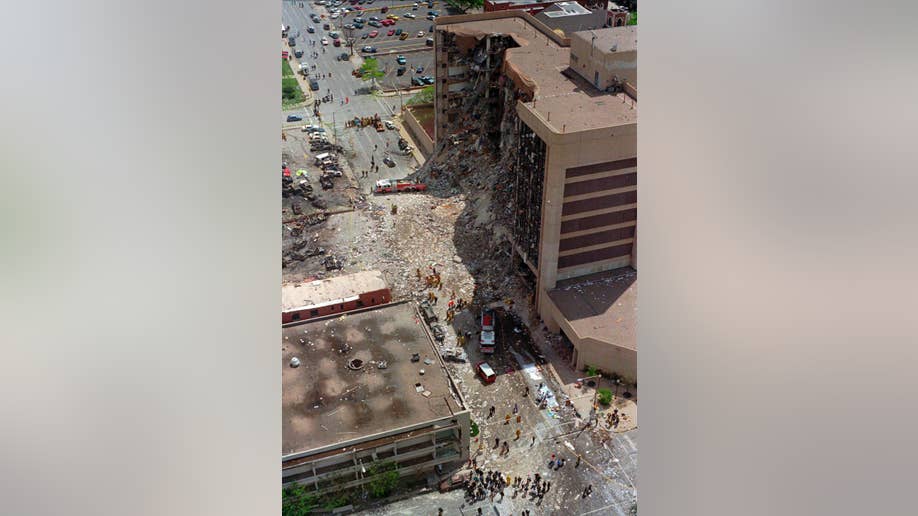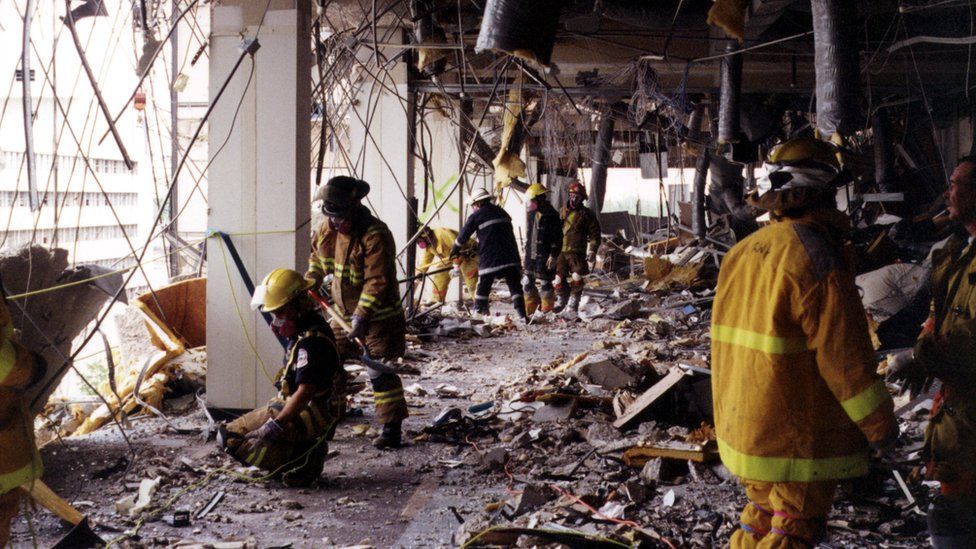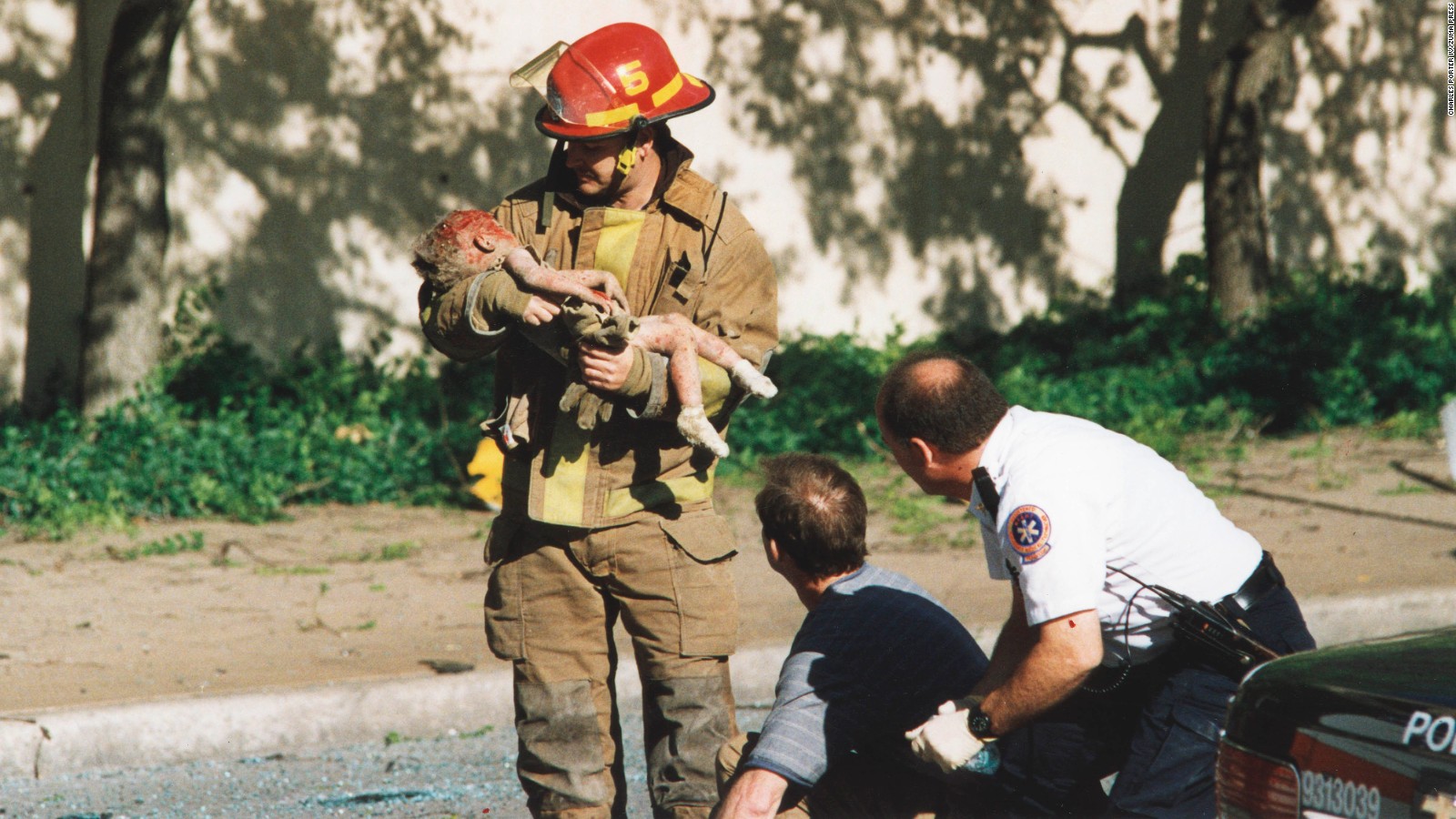Table of Contents
- Oklahoma City bombing: 20 years later, key questions remain unanswered ...
- The History and Impact of the Oklahoma City Bombing
- Look back on the 28th Anniversary of the Oklahoma City Bombing
- AP PHOTOS: Images of Oklahoma City bombing of federal building ahead of ...
- Oklahoma City bombing: The day domestic terror shook America - BBC News
- Oklahoma City Bombing Fast Facts - CNN
- Oklahoma City Bombing Fast Facts | CNN
- Oklahoma City bombing: The day domestic terror shook America - BBC News
- AP Was There: Oklahoma City Bombing story
- Oklahoma City Bombing Fast Facts - CNN

The Oklahoma City bombing, which occurred on April 19, 1995, was a pivotal moment in American history that forced the nation to confront a hidden threat: domestic terrorism. The devastating attack, perpetrated by Timothy McVeigh and Terry Nichols, resulted in the loss of 168 lives and injured hundreds more. The bombing of the Alfred P. Murrah Federal Building sent shockwaves across the country, revealing a dark reality that had been lurking beneath the surface of American society.

Prior to the Oklahoma City bombing, many Americans perceived terrorism as a foreign threat, often associated with extremist groups from other countries. However, the Oklahoma City attack exposed the harsh reality that terrorism can also be homegrown. The fact that the perpetrators were American citizens, motivated by a twisted ideology and a desire for revenge against the government, was a wake-up call for the nation. The bombing highlighted the need for Americans to acknowledge and address the threat of domestic terrorism, which had been largely overlooked until then.


A Shift in Perception

The Oklahoma City bombing marked a significant shift in the way Americans perceived terrorism. The attack led to a greater understanding that terrorism is not solely a foreign phenomenon, but also a domestic concern. The bombing forced law enforcement agencies and policymakers to re-evaluate their approach to counter-terrorism, recognizing that the threat was not only external but also internal. This new perspective led to a more comprehensive and nuanced approach to addressing terrorism, including a greater emphasis on domestic intelligence gathering and community outreach programs.


Increased Focus on Domestic Intelligence

In the aftermath of the Oklahoma City bombing, there was a significant increase in focus on domestic intelligence gathering. Law enforcement agencies began to pay closer attention to extremist groups and individuals within the United States, recognizing that these groups posed a legitimate threat to national security. The bombing also led to the creation of new laws and policies aimed at preventing and responding to domestic terrorism, including the USA PATRIOT Act. While these measures have been controversial, they reflect the growing recognition of the need to address the threat of domestic terrorism.


A Lasting Impact
The Oklahoma City bombing has had a lasting impact on American society and politics. The attack led to a greater awareness of the threat of domestic terrorism and the need for vigilance and cooperation between law enforcement agencies and local communities. The bombing also sparked a national conversation about the roots of extremism and the ways in which it can be prevented. Today, the Oklahoma City National Memorial & Museum serves as a poignant reminder of the devastating consequences of terrorism and the importance of promoting tolerance, understanding, and community cohesion.
In conclusion, the Oklahoma City bombing was a traumatic event that forced Americans to confront a hidden threat: domestic terrorism. The attack led to a shift in perception, a greater focus on domestic intelligence, and a lasting impact on American society and politics. As the nation continues to grapple with the complexities of terrorism, it is essential to remember the lessons of Oklahoma City and to remain vigilant in the face of this ongoing threat.
Keywords: Oklahoma City bombing, domestic terrorism, Timothy McVeigh, Terry Nichols, counter-terrorism, intelligence gathering, community outreach, USA PATRIOT Act, extremism, national security.